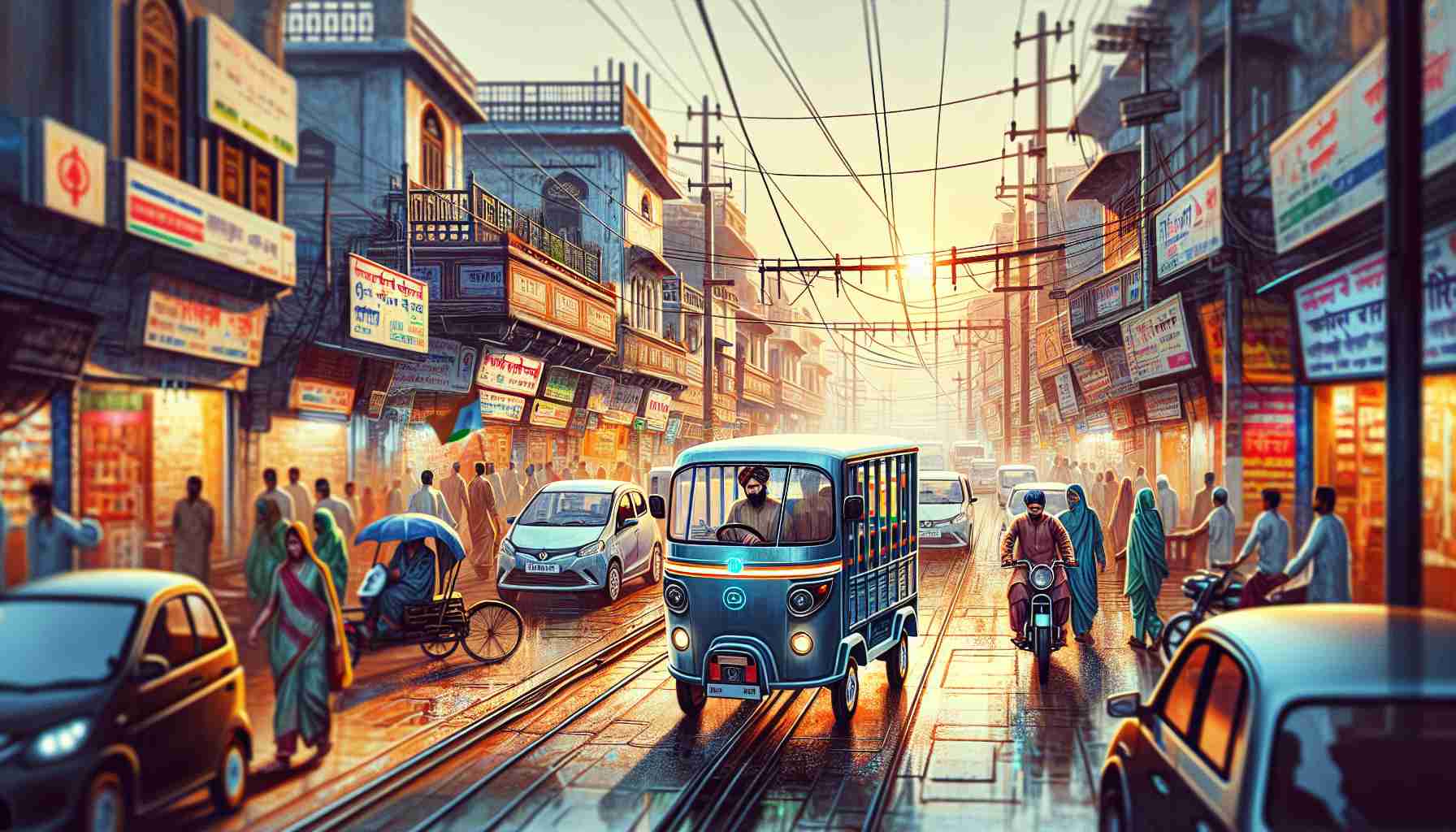India’s leading three-wheeler manufacturer, Mahindra, has teamed up with electric vehicle powertrain solutions company, IRP Systems, to accelerate the electrification of last-mile transportation. Mahindra’s partnership with IRP Systems will involve the integration of advanced motor controllers into their three-wheelers, enabling increased electric vehicle (EV) penetration in the sector.
The collaboration comes after extensive testing and validation of the powertrain hardware to meet the demanding requirements of the Indian market and Mahindra’s global markets. Sanjiv Gupta, Chief of Operations at Mahindra Last Mile Mobility Limited (MLMML), expressed the shared vision of both companies to provide cutting-edge technology and reliable vehicles for electrifying last-mile transportation. This partnership marks a significant step in that direction.
IRP Systems’ CEO, Moran Price, emphasized the game-changing nature of the collaboration, stating that it creates a winning offering in one of the most significant segments of India’s last-mile market. The collaboration aligns with IRP Systems’ goal of making EVs accessible to everyone, everywhere.
The widespread adoption of three-wheelers, known as “auto-rickshaws,” in India can be attributed to various factors deeply rooted in the country’s socio-economic landscape. The compact size and maneuverability of auto-rickshaws make them ideal for navigating congested city streets, providing commuters with a swift and cost-effective alternative to traditional taxis and public buses.
Moreover, auto-rickshaws are affordable for both passengers and drivers, making them a viable means of earning a livelihood, especially for individuals in lower-income brackets. The relatively low initial cost of purchasing an auto-rickshaw, coupled with minimal maintenance expenses, attracts aspiring entrepreneurs in the transportation sector.
These vehicles offer flexibility for drivers to adapt to fluctuating demand and maximize their earnings in dynamic urban environments. As a result, auto-rickshaws have not only become a mode of transport but also a symbol of economic empowerment for many individuals in India.
While auto-rickshaws have traditionally been powered by small motorcycle combustion engines, there is a growing push towards electrification. Major companies like IKEA in India have even started adopting electric auto-rickshaws for delivery work, demonstrating the increasing viability and sustainability of EVs in the last-mile transportation sector.
Mahindra’s collaboration with IRP Systems represents a significant milestone in the journey toward a greener and more sustainable transportation ecosystem in India. By embracing cutting-edge technology and electric powertrains, Mahindra aims to revolutionize last-mile transportation and contribute to a cleaner and healthier future.
Frequently Asked Questions:
1. What is the partnership between Mahindra and IRP Systems about?
– The partnership between Mahindra and IRP Systems aims to accelerate the electrification of last-mile transportation. It involves integrating advanced motor controllers into Mahindra’s three-wheelers to increase the penetration of electric vehicles in the sector.
2. What were the requirements for the powertrain hardware?
– The powertrain hardware underwent extensive testing and validation to meet the demanding requirements of the Indian market and Mahindra’s global markets.
3. What is the objective of Mahindra and IRP Systems?
– Both companies share the vision of providing cutting-edge technology and reliable vehicles for electrifying last-mile transportation.
4. What is the significance of this partnership?
– This partnership marks a significant step towards achieving the shared vision of enhancing last-mile transportation with electrification.
5. What does IRP Systems aim to accomplish with this collaboration?
– IRP Systems aims to make electric vehicles accessible to everyone, everywhere, and sees this collaboration as a game-changing opportunity in one of the most significant segments of India’s last-mile market.
6. Why are three-wheelers popular in India?
– Three-wheelers, also known as auto-rickshaws, are popular in India due to their compact size and maneuverability, making them suitable for navigating congested city streets. They also offer a swift and cost-effective alternative to traditional taxis and public buses.
7. How do auto-rickshaws benefit both passengers and drivers in India?
– Auto-rickshaws are affordable for both passengers and drivers, making them a viable means of earning a livelihood, especially for individuals in lower-income brackets. The low initial cost and minimal maintenance expenses attract aspiring entrepreneurs in the transportation sector.
8. How do auto-rickshaws contribute to economic empowerment in India?
– Auto-rickshaws not only serve as a mode of transportation but also symbolize economic empowerment for many individuals in India. They provide flexibility for drivers to adapt to fluctuating demand and maximize their earnings in dynamic urban environments.
9. Why is there a push for electrification of auto-rickshaws?
– There is a growing push for electrification of auto-rickshaws due to the increasing viability and sustainability of electric vehicles in the last-mile transportation sector. Major companies like IKEA in India have already started adopting electric auto-rickshaws for delivery work.
10. What is Mahindra’s objective with their collaboration with IRP Systems?
– Mahindra aims to revolutionize last-mile transportation by embracing cutting-edge technology and electric powertrains, contributing to a cleaner and healthier future.
Key Terms:
– Last-mile transportation: Refers to the transport of people or goods from a central transportation hub (such as a train station or airport) to their final destination, typically within a short distance.
– Electrification: The process of transitioning from traditional fuel sources (such as gasoline or diesel) to electrical power for the operation of vehicles.
– Integration: The act of combining or incorporating different components or systems into a unified whole.
– Powertrain: The mechanism or system that generates power and transfers it to the wheels or other components of a vehicle.
Related Links:
– Mahindra
– IRP Systems
– Reuters Article







